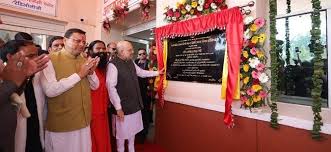Uttarakhand: Now post mortem of dead body will be done without dissection, AIIMS Rishikesh has invented a new method

a
Now the post mortem of the dead body will be done without any incision. AIIMS Rishikesh has invented a new method of post mortem. In this, post mortem can be done without any incision with the joint cooperation of laproscopy, endoscopy and CT scan. AIIMS experts claim that this method is more accurate than the traditional method.
In the traditional method, the body has to be cut from the throat to the stomach for post mortem. Also, the head part has to be cut. The feelings of the relatives are hurt by cutting the dead body for post mortem. Due to which many times the relatives also refuse to do the post mortem.
Keeping all these things in mind, AIIMS experts have invented a new method of post mortem, which has been named minimally invasive autopsy. Dr. Ashish of the Forensic Medicine Department of AIIMS says that for a long time such efforts were going on that minimum incision should be done during post mortem.
In many medical institutions, post mortem is being done through CT scan. But in some cases, despite the presence of CT scanner, incisions have to be made for internal examination, viscera and biopsy. In such a situation, the idea came that postmortem can be done through laparoscopy and endoscopy along with CT scan. Due to which internal organs can be examined and biopsy can be done without incision. Department head Dr. Binay Bastiya and institute director Professor Meenu Singh fully supported in starting this method.
What is minimally invasive autopsy?
Dr. Ashish Bhute explains that in this technique, after doing CT scan, holes of about two centimeters are made at some places on the dead body to examine the internal organs of the dead body. Laparoscopic or endoscopic telescope is inserted through these holes. The organs inside the stomach can be examined. The cavity of the organs can be seen through endoscopy. In sexual related cases, the inside of the genitals can be seen. Earlier, to see the inside of these organs, these had to be cut.







